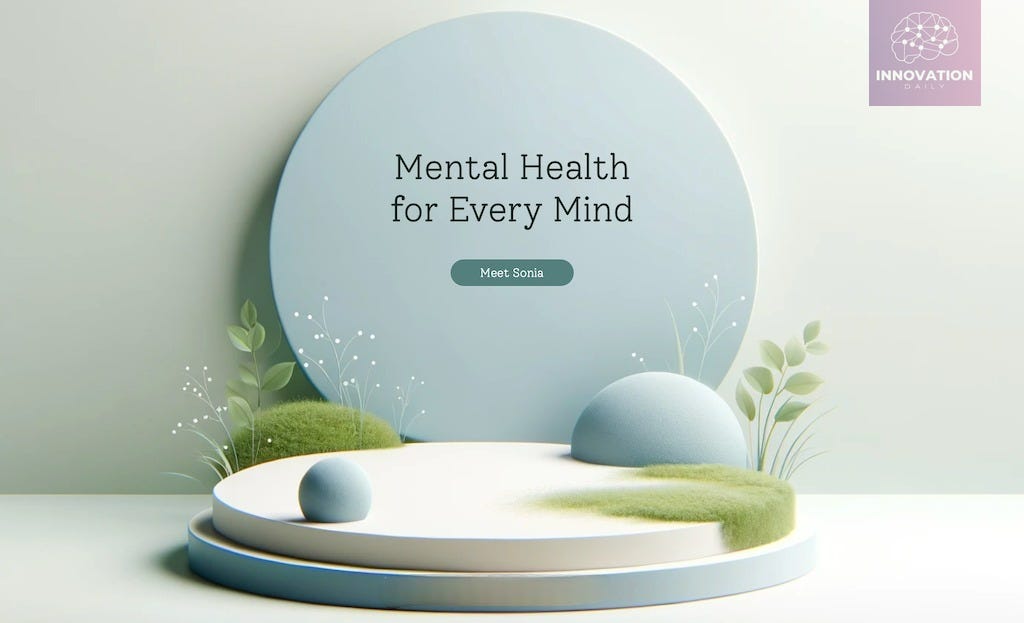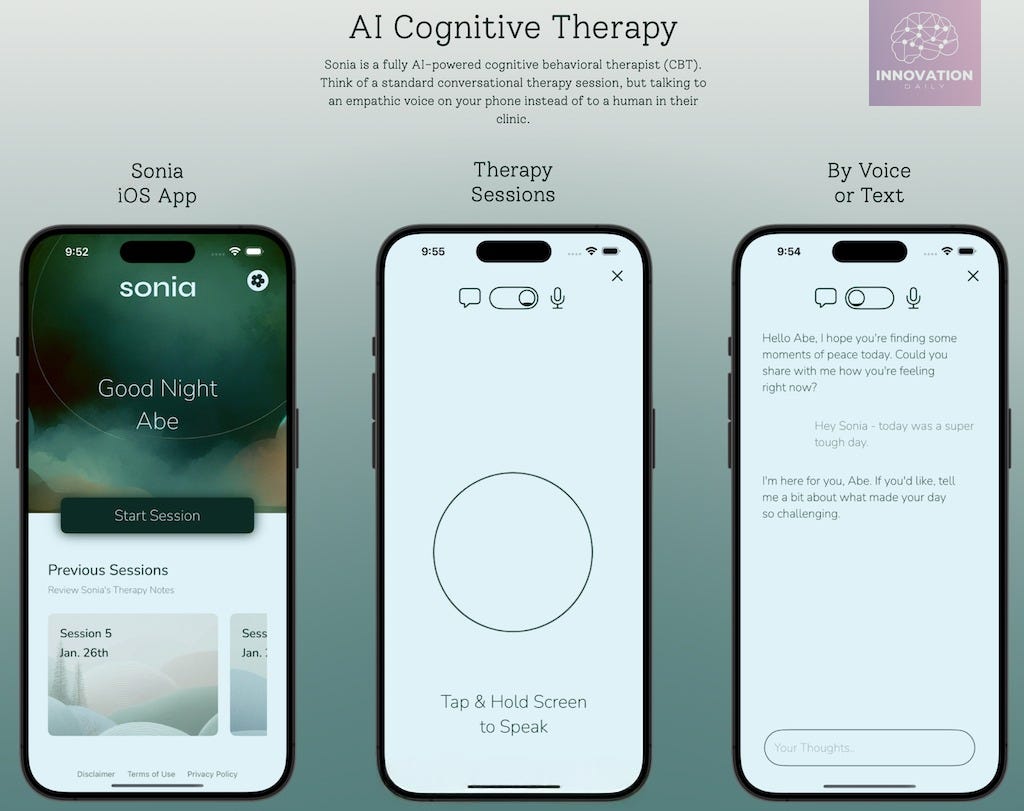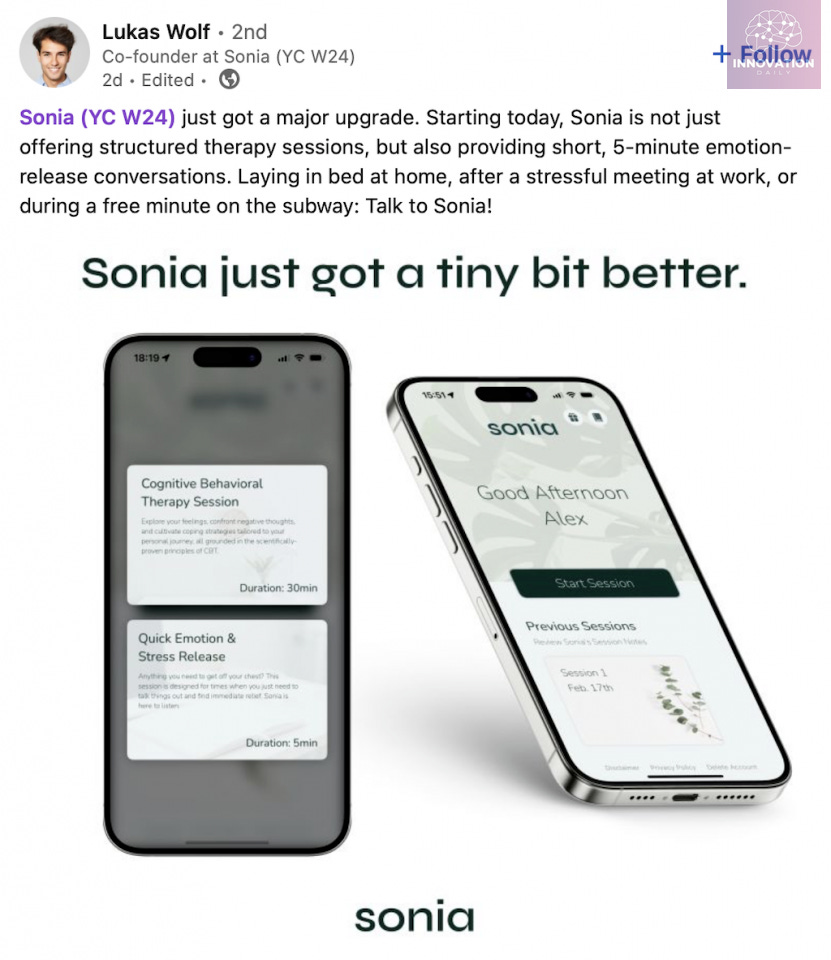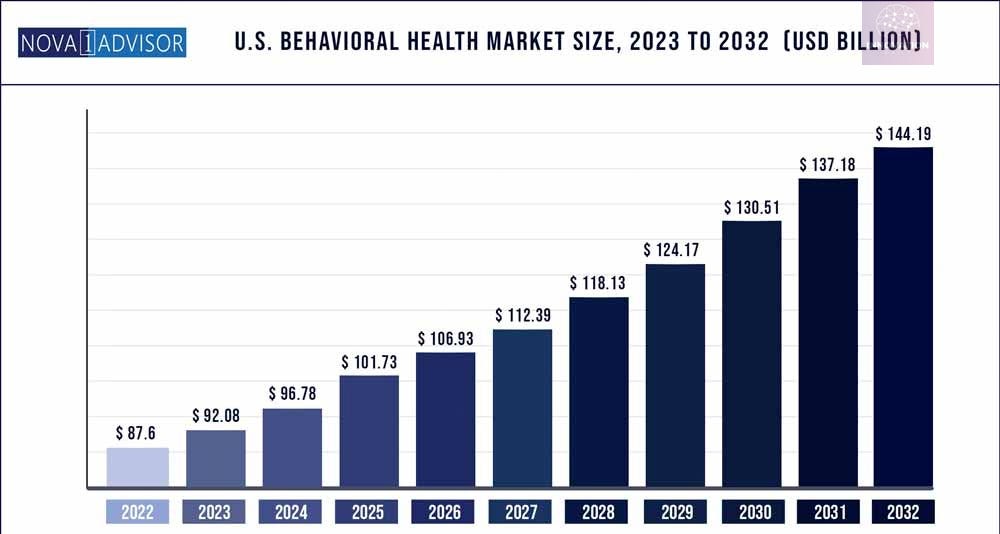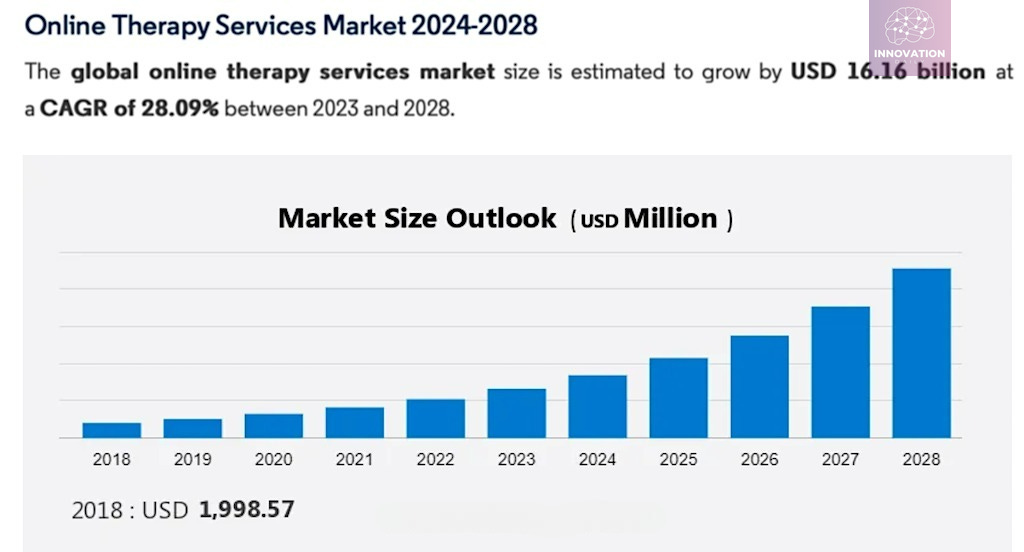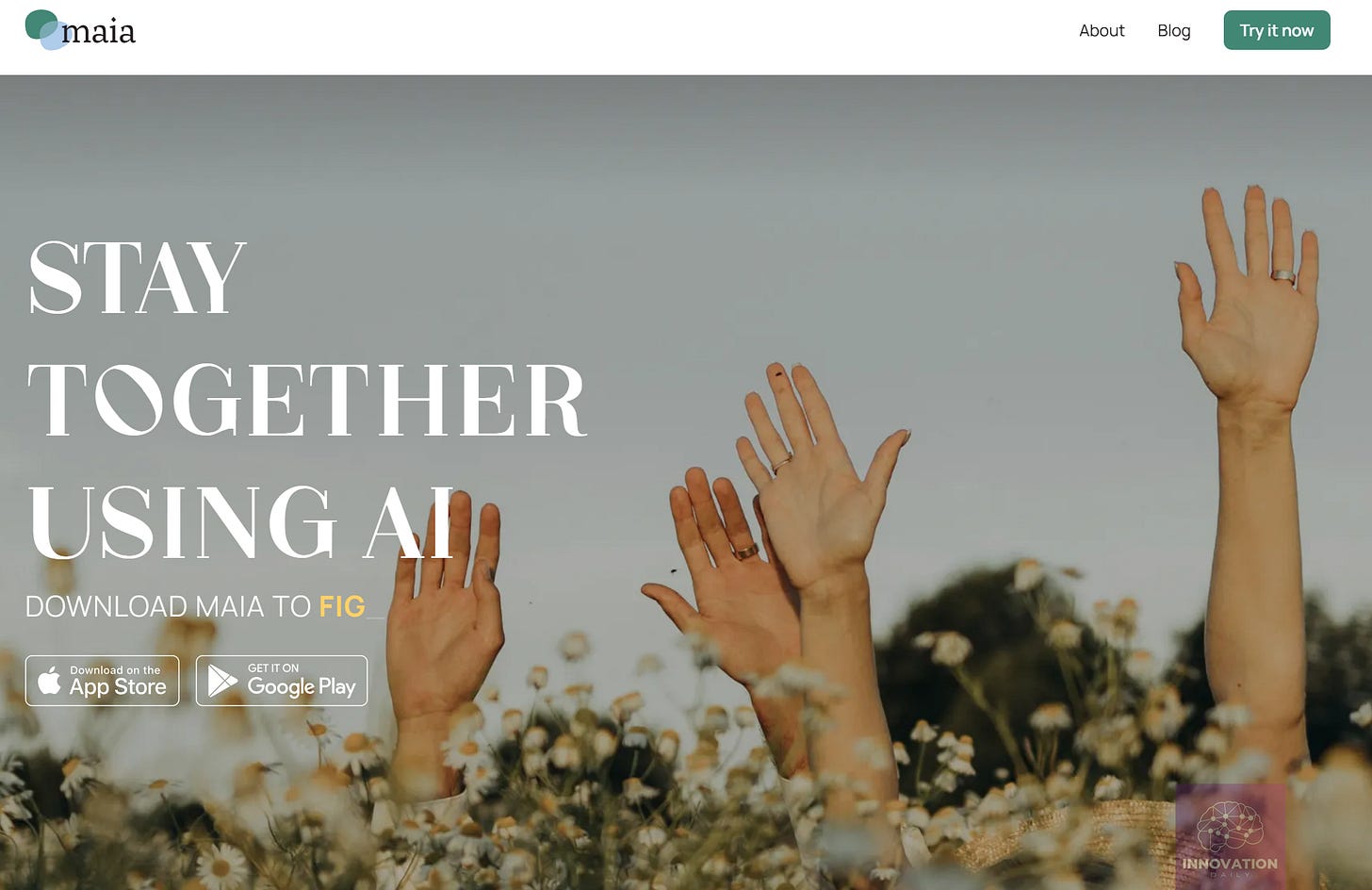The Future of Therapy is Here
Today’s featured startup is bringing mental health care to everyone through AI — affordable, available, and always on
Project Overview
Sonia aims to make mental health support accessible to everyone — no appointments, no high fees, no stigma.
Anyone can download the Sonia app and have a therapeutic session with an AI companion that acts as a personal psychologist. Each session lasts around 30 minutes and can be done via text or voice — whatever feels more natural.
The startup positions its AI therapist as an affordable, always-available alternative to traditional therapy:
For everyone. Sonia costs about 1% of a regular therapist’s fee — lowering the entry barrier for millions of people who can’t afford in-person therapy.
Everywhere. Over 100 million Americans live in small towns where there’s often just one psychologist per 30,000 residents. Sonia fills that gap.
Anytime. Whether it’s 2 a.m. and anxiety keeps you awake, or you just need a quick boost before work — the app is ready when you are.
Recently, the startup added “micro-sessions” — short, five-minute conversations designed to ease stress or anxiety on the spot.
Beyond individuals, Sonia also targets corporate clients, helping companies support their teams’ mental health, reduce burnout, and improve productivity.
Sonia is part of the current Y Combinator batch, having received $500K in funding, and has just officially launched its app on the accelerator’s platform.
What’s the Gist?
Mental health isn’t a niche issue — it’s a massive global challenge.
As of 2022, 1 in 5 Americans struggled with mental health problems — that’s roughly 50 million people in the U.S. alone, with a quarter facing serious conditions.
Yet traditional therapy remains expensive and hard to access. A typical session costs $100–200, and one session is rarely enough. Meanwhile, the U.S. mental health market reached $92 billion in 2023, projected to grow to $144 billion by 2032.
The shift to online therapy is already well underway — and the next logical step is replacing human therapists with AI-powered ones.
For many users, the key benefit of therapy isn’t the complexity of psychological techniques but simply being heard and receiving words of empathy and support. AI can already handle that effectively.
And as it turns out, Sonia isn’t alone: just a week ago, another YC startup, Maia, announced its own AI psychologist — this one focused on helping couples. Two AI-therapy startups in the same YC batch clearly signal a new market trend: emotional support delivered by artificial intelligence.
Key Takeaways
In 2022, the mental health app market was valued at $5.2 billion and was expected to reach $23.8 billion by 2032.
But with the emergence of AI psychologists, growth could accelerate far beyond that.
Here’s why:
Money will shift from traditional therapy toward digital AI solutions.
Accessibility will expand, opening the market to millions who were previously priced out or uncomfortable with human therapists.
The broader mental health market — $147 billion in 2023, expected to reach $227 billion by 2032 — offers enormous room for disruption. Even if just 10% of that flows into AI-driven therapy, the digital segment could double in size.
For founders and investors, this points to a clear direction:
Build products that offer real emotional relief — powered by AI.
If meditation and mindfulness apps created multiple unicorns, AI therapy might just create the next generation of billion-dollar startups.
Company info
Sonia
Website: soniahealth.com
Last round: $500K, 01.12.2023
Total funds raised: $500K, across 1 round



